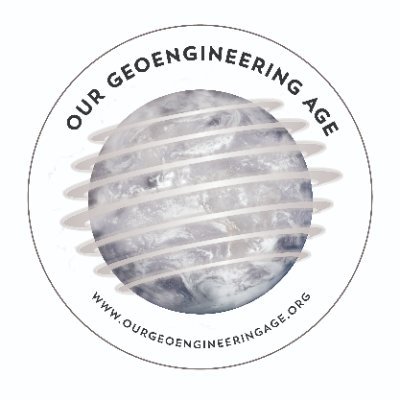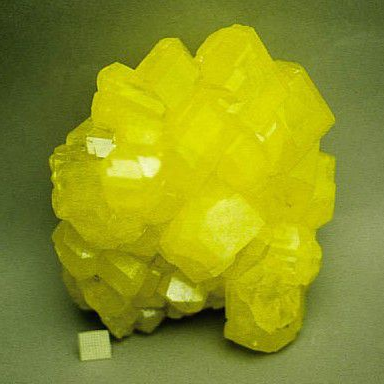
Geoengineering for A Better Tomorrow
@joey_needs
Stratospheric aerosol injection as a solution for global cooling.
You might like
Geoengineering is on the frontier of climate change science. As a new and rapidly developing field, it’s important to take into consideration new information about risks as well as benefits. Keep up with the cutting edge at: geoengineering.environment.harvard.edu
Rapidly rising temperatures threaten our ecosystems. It’s important for all of us to know our options so we know what we can do to preserve diversity in the biosphere for future generations. Here’s an infographic to share to spread the word!
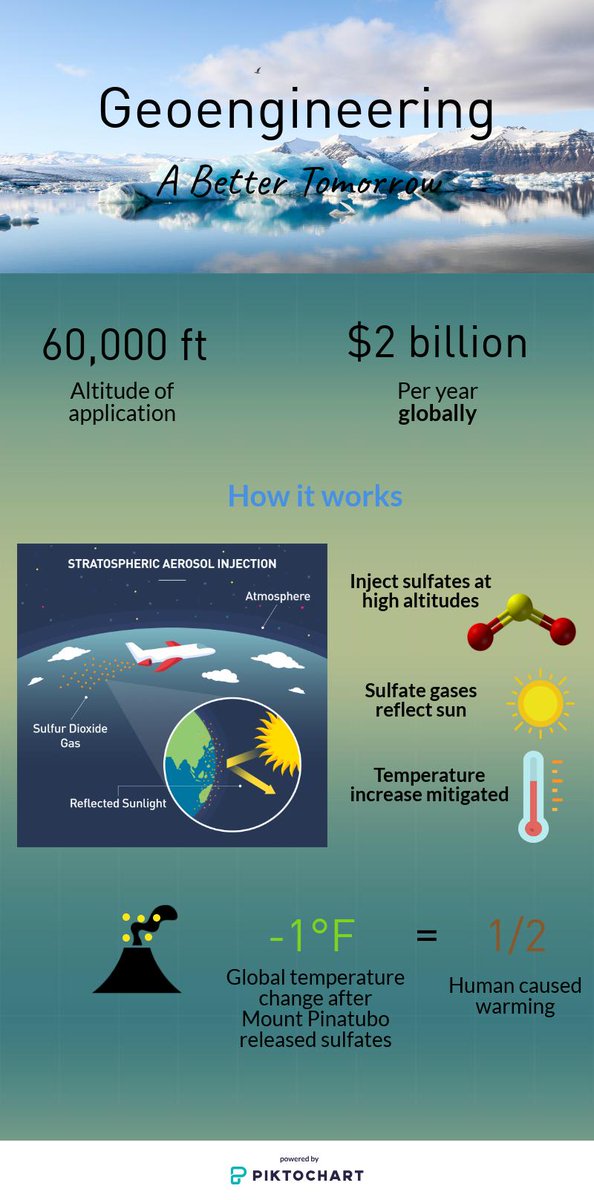
SAI is extremely affordable from a global perspective. Although it should not be considered a permanent solution, it gives us more time to develop reliable, clean, and renewable energy sources. Learn more at our website: sites.google.com/ccs.k12.in.us/…
Evidence from sulfur aerosols from the Mount Pinatubo eruption shows that SAI can slow or stop temperatures from rising, making it a promising solution for stopping further destruction in global ecosystems as we transition to more sustainable living.

Stratospheric aerosol injection (SAI) is a geoengineering technique that gives us more time to respond to rising temperatures. Click here to learn more: pbs.org/newshour/show/…
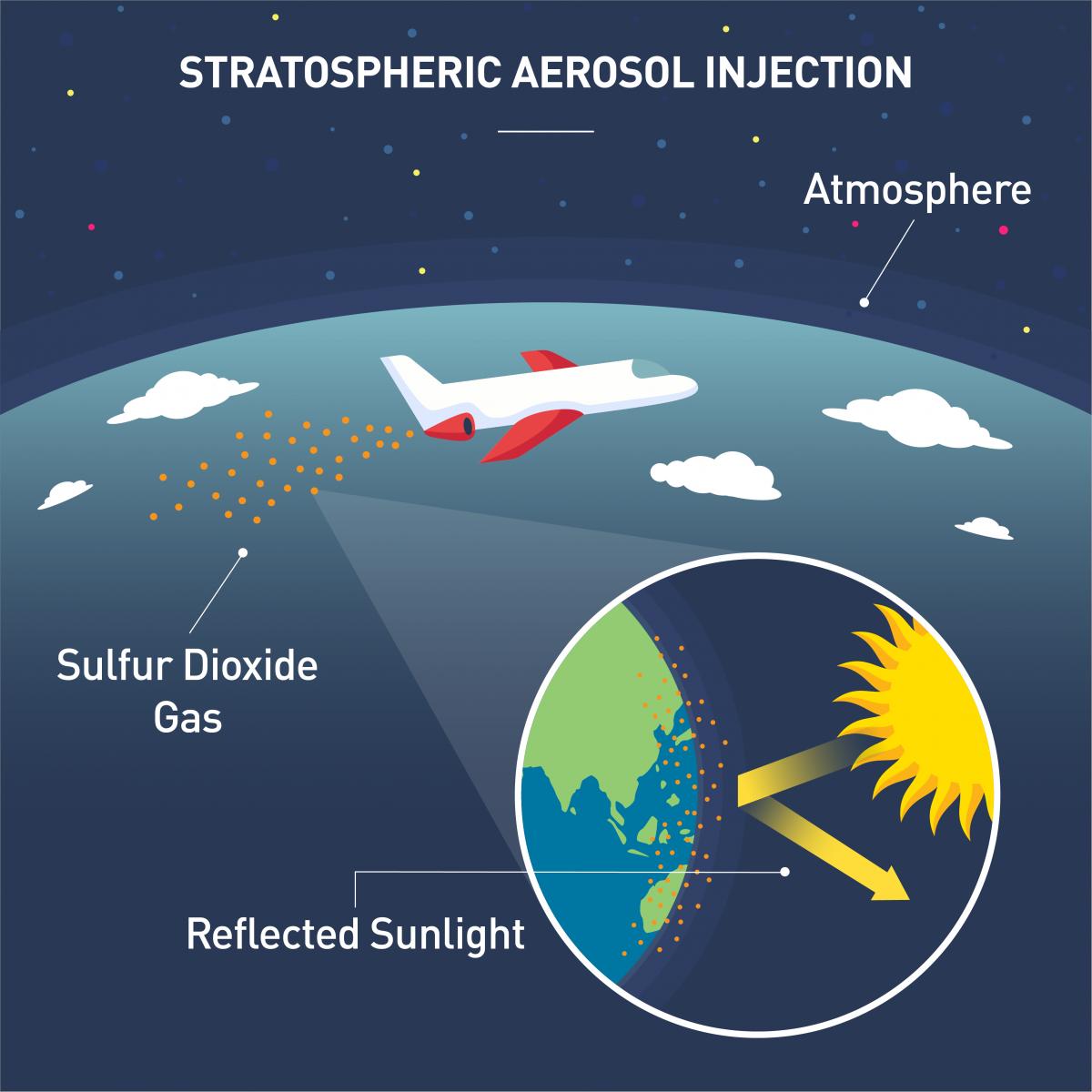
Although climate change can be prevented by reducing carbon emissions, that doesn’t stop the existing effect to the Earth unless we do something else. Carbon remains in the atmosphere and continues to trap heat.
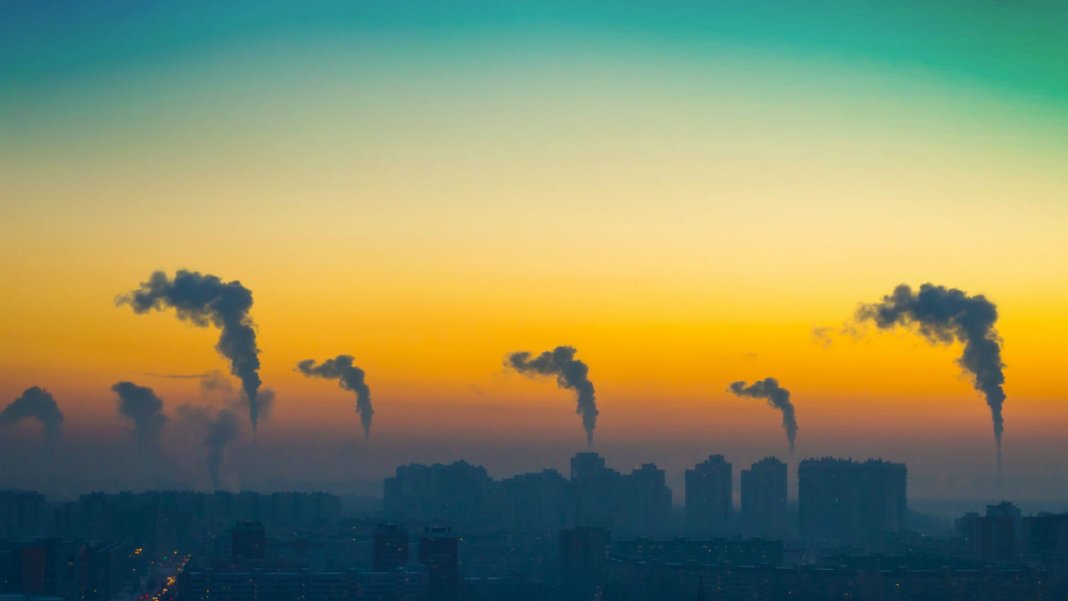
Rising temperatures are devastating ecosystems, populations, and communities around the world. Here are some photos that represent show the profound effects of rising temperatures so far: cbsnews.com/pictures/stunn…
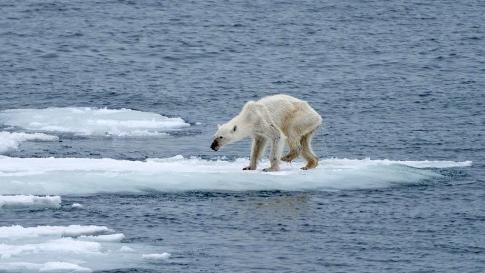
Species move to different ecosystems and latitudes as a result of temperature increase. This disrupts homeostasis in ecosystems as different species move at different rates, disrupting matter cycles and energy flow in ecosystems as species introduce new niches.
Rising temperatures reduce biodiversity by driving many populations to extinction because of changes in their ecosystem. These population changes are amplified by changes in other populations in the communities with interactions to the threatened population.
Imagine a world without coral reefs or the local species in your backyard we take for granted. These are all possible as climate change continues. As temperatures are projected to increase 1-6 degrees C over the next century, the world will see rapid change like never before.
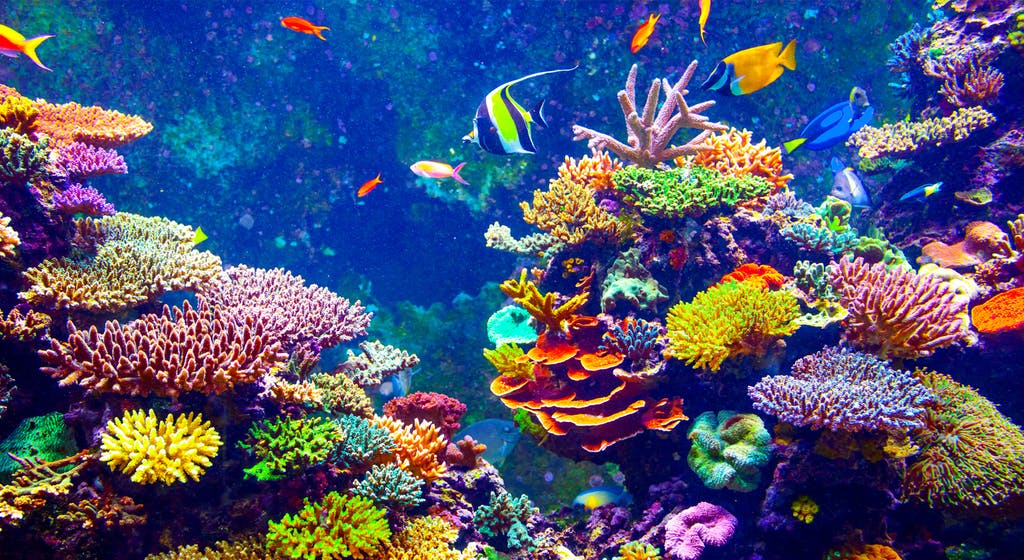
United States Trends
- 1. Colts 15.2K posts
- 2. Caleb Williams 2,714 posts
- 3. #HereWeGo 3,085 posts
- 4. TJ Watt 1,652 posts
- 5. Jameis 5,168 posts
- 6. Arsenal 348K posts
- 7. #ChiefsKingdom 2,462 posts
- 8. Mason Rudolph 3,812 posts
- 9. Tottenham 107K posts
- 10. #HardRockBet 4,110 posts
- 11. #ARSTOT 21.4K posts
- 12. Thomas Frank 11.5K posts
- 13. #GoPackGo 2,404 posts
- 14. Jawaan Taylor N/A
- 15. Nahshon Wright N/A
- 16. Geno Stone N/A
- 17. Wan'Dale Robinson N/A
- 18. Go Birds 9,033 posts
- 19. Dallas Turner N/A
- 20. St Brown 1,179 posts
Something went wrong.
Something went wrong.
















